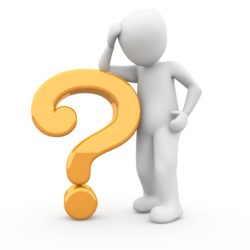 Although I have discussed using other punctuation with quotation marks in my blog and in my books, it is still one of the most common questions I am asked, so let’s review. Punctuation can be messy!
Although I have discussed using other punctuation with quotation marks in my blog and in my books, it is still one of the most common questions I am asked, so let’s review. Punctuation can be messy!
Periods and commas always go inside the quotation marks. Always. Really. Believe me. Oh, unless you are using British English. But you probably aren’t. In American usage, even if the quotation marks belong to the entire sentence rather than to what is at the end of the sentence, the period or comma goes inside the quotes.
- He said, “I would like a turkey sandwich.”
- “I would like a turkey sandwich,” he said.
- I just downloaded the song “Building the Bridge.”
- I just downloaded the song “Building the Bridge,” which is my favorite new song.
- “I just downloaded the song ‘Building the Bridge,'” he said. (Notice that here, we have a single quotation mark after the song title, as well as the double quotes that signify the end of the direct quote.)
In British English, the period or comma goes outside the quotation marks.
- “I would like a turkey sandwich”, he said.
- I love the song “Building a Bridge”.
Remember that single quotation marks are used when you need quotation marks inside of quotation marks. They really aren’t used for anything else. Since quotation marks are used for song titles, short story titles, article titles, and other short works (italics are generally used for longer works, such as books, magazines, newspapers, etc.), if a song title or poem title is used within a direct quote, you would have a need for single quotes.
- “I love the article ‘Find Your Fashion Sense’ that I just read in the recent issue of that magazine.”
Don’t confuse ending quotation marks with an apostrophe that appears at the end of the sentence. An apostrophe at the end of the sentence probably indicates a possessive; punctuation would go outside, since the apostrophe goes with the word it makes possessive:
- These books are mine, but the books in the other bookcase are my sisters’. (belong to my sisters: plural possessive)
Let’s switch to colons and semicolons. Unlike periods and commas, colons and semicolons always go outside quotation marks. Colons and semicolons with quotation marks are less common than period and commas.
- She said, “I am coming to your party”; I knew she wouldn’t show up.
- He said, “The meeting was called to discuss the merger”: no discussion ever took place.
Question marks and exclamation points can go either before or after the quotation marks, depending on the sentence. They are placed inside the quote if they are part of the quote. However, if they are part of the entire sentence, they are placed outside the quotes.
- Did he say, “You are my best friend”? (Question mark belongs to the entire sentence.There is no period after friend because we don’t use both punctuation marks.
- He asked, “Are you my best friend?” (Question mark belongs only to the quote, so the mark is placed inside the quotes. )
- “You are my best friend!” he exclaimed. (Only the quote is the exclamation, so it is placed inside the quotes.)
- It shocked me when the stranger said, “You are my best friend”! (The entire sentence is exclamatory, not just the quote, so the mark is placed outside the quotation marks.)
Check out this sentence: Did he ask, “Are you my best friend?” Here, notice that both the entire sentence AND the quoted portion are questions. However, we do not use two question marks. In this case the one question mark goes inside the quotes. The same would apply if both the entire sentence and the quoted portion were exclamatory. Then there would be an exclamation point inside the quotation marks.
If, for example, the quoted part of the sentence is a question and the entire sentence is an exclamation, don’t use both a question mark and an exclamation point. Choose one, probably the question mark.
- It shocked me when he asked, “Can I be your best friend?”
Dashes and ellipses, like question marks, can be placed either before or after the quotation marks, depending on the sentence:
- “I was looking for my cat, but then . . . ” she said as she trailed off.
- She said, “I found my cat in my cousin’s garage”– and she quickly changed the subject.
Some sentences can get pretty complicated with quotes inside of quotes and commas and question marks. If your sentence gets confusing, the best thing is to rewrite, maybe into multiple sentences with fewer punctuation marks.
**********
A Favor to Ask: If you own any of my books and have not yet posted an Amazon review, I would appreciate it if you would. It doesn’t have to be long; one sentence reviews are fine too. Reviews really help to sell books. Amazon is being a little cranky about posting reviews, so I don’t know what the deal is, but – thank you!



In Spanish and other languages, they go outside the quotation marks. We see clients wanting to change this because they are following the American English rule (at least they know that rule!).
Thanks for the information.
The English language IS the English language – favour is not spelt favor.
You cannot teach or correct incorrections with incorrections.
Americans don’t have their own language – they speak English – badly!
Thanks for the opinion.
A messy affair indeed! I will save this article for future reference. Many thanks!
You are very welcome! Thanks for the comment.
A great guide. Thanks. I teach students how to write college application essays and grad school personal statements; I will share this many times!
Thanks so much for the kind words; I hope your students will be helped!
Sorry Arlene but in British English the punctuation mark only comes outside the quote if it is a _quote_ (repeating what someone else wrote or said)and inside if it is dialogue.
Thanks for that correction. .I guess in this instance, American English is simpler!
No. American English is simpler for Americans and English English is simpler for Britons (and possibly Commonwealth countries though I’m not ‘up’ on their standards)..
A wonderful, straightforward and understandable presentation on the proper use of punctuation. Where were you when F, Scott Fitzgerald was floundering in this area? Many thanks.
Thank you so much! I would have been happy to help Mr. Fitzgerald, but I am not sure he needed my help to sell books!
Great to be reminded. Grammar rules seem simple until all of a sudden they’re not. (Should there be commas in that sentence?) Thanks, Arlene, for sharing your knowledge.
Belinda- thank you for the comment, and no, you don’t need a comma in that sentence. There is more of an explanation in the e-mail I sent you about the very same thing….those confusing adverb clauses and their commas- or not.
Thank you very much for helping me keep my English fresh. I save all your articles.
Thank you so much! Glad to hear it.
As always, Arlene, very helpful. Many thanks,
Gordon Burgett
Thank you , Gordon!
Dear Arlene,
Your blog, books, and big statements are of inestimable value. Many, many thanks for your constancy.
Thank you so much!!!! Appreciate it! You made my day. (If you love a book of mine, a short review on Amazon would be greatly appreciated!!!!) 🙂
Thanks. You’ve added more knowledge about this to me.
Could you explain me briefly the difference between Traditional Grammar and Communicative Grammar? Which one would you prefer when teaching English?
Thanks again, I remain.
I assume you are referring to formal English rather than more conversational English. I taught formal English, which is used by students in their writing, but if there was a more conversational way of saying something that was acceptable, I would probably also tell them about it.
This is good stuff. Thanks for the reminders!
Thank you!!!!
This is helpful. I have trouble with this in story dialogue when the character speaking is quoting somebody else, thus requiring single quotes within double.
Yup! That could be complicated! Avoid whenever possible! 🙂